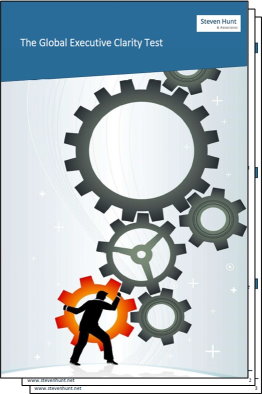Big goals require us to re-imagine, not rehash.
The incoming CEO at Siemens, Roland Busch wants, “a new leadership culture, which isn’t always top-down. Siemens has to be more flexible.” At Eon, the incoming CEO, Leonhard Birnbaum says, “Without innovation, we won’t be successful.” Two big companies, two big goals: flexibility and innovation.
I’m curious. Huge goals require us to re-imagine not rehash. I’ve worked with global divisions in both Siemens and Eon. They have highly creative and imaginative people. They also have plenty of people who are along for the ride, protecting their little fiefdoms. So it’ll be interesting to see how this one plays out. There’s certainly the experience and talent to create the success.
The key question is can enough of Siemens’ and Eon’s global managers re-imagine their future to implement new ways of working? Or will it end up as a rehash of old ideas and old ways?
Added to that are the current high-levels of uncertainty – and negative stress – which make achieving those big goals harder. We know negative stress knocks our goals off track.
Your brain likes routine in negative stress situations
Under stress, we all have a strong tendency to go back to known routines – our old, established habits.
Research in the Journal of Neuroscience found stress hormones push the brain to switch back to established routines. When these stress hormones are released, the pre-frontal cortex, which plays an important role in decision-making, functions in a sub-optimal way. So under negative stress, we think less and act more.
For global managers, that certainly influences business outcomes, because it directly impacts areas like:
- the clarity of decision-making;
- the ability to focus and concentrate on the essentials;
- the ability of managers to be innovative and to lead innovation, because that depends on creative thinking; and
- the speed at which global managers implement new, more efficient processes.
So the managers at Siemens and Eon – like most global managers – have a battle on their hands. They’ll need to counteract the individual tendency to go back to old routines.
The winning countermoves: healthy habits and willpower.
You can’t stop the negative stress. We know there will be plenty of it in the coming months.
Nor can you predict exactly when the negative stress will happen.
Two proven ways to proactively offset the negative stress are to develop healthy habits and willpower… and preferably both.
Healthy habits
Under negative stress, the brain rarely freezes. It still works. It goes to known routines and habits.
Think about it. Let’s take the example of the last big exams you took. The chances are you started out a few months beforehand with new ideas about revising, getting enough sleep and eating well. But researchers know that as you get closer to the exams and the pressure starts to build, most people will default to their existing habits.
So for companies facing big changes – like Siemens, Eon and pretty much every global company – a good place to start is to motivate managers and employees to develop positive habits now. Then when the pressure really hits in a few months time, they will manage the situation better.
Healthy habits now lead to healthy outcomes later.
Willpower
The alternative is to use willpower. A few people have extraordinary willpower. The best actively support it with activities like self-reflection and meditation. (These are both positive habits to get into.)
Unfortunately, most people – and that’s most people at work – see their willpower run out very quickly.
If you can use willpower and healthy habits, fantastic. If not, work now on developing healthy habits.
So if turning “re-imagining your future” into healthy habit is an immediate goal, where can global managers start?
The easiest way to challenge your own assumptions, to be innovative and creative is to look across your global organization. Talk to people in other regions, countries, markets, divisions. Do it as a habit. Find out how they work successfully with local customers in their local markets. Talk to the divisions that have outstanding business results. You’ll see big differences. And the big differences are the seeds of creative thinking.
The bottom-line is: the creativity you need to innovate or be flexible probably already exists within your global organization. Framed like that, your challenge is easy: it is to dialog with people to find the creative processes that produce great results and transfer them into your function and your location.
















